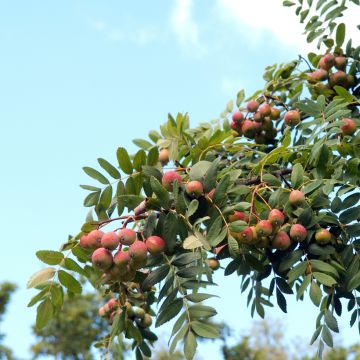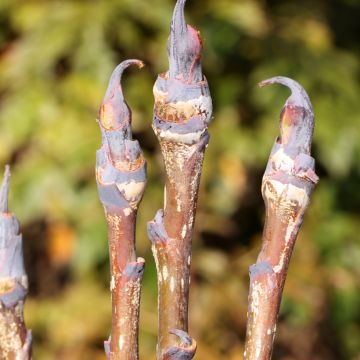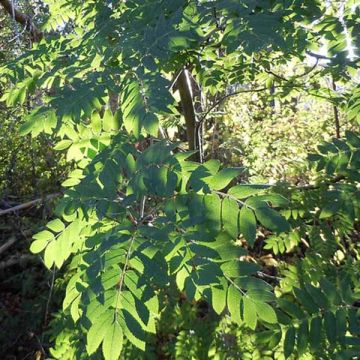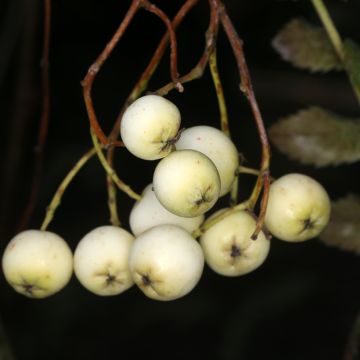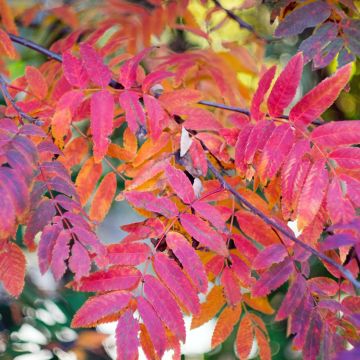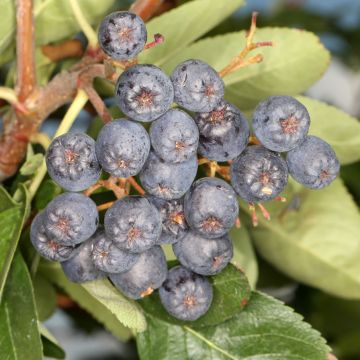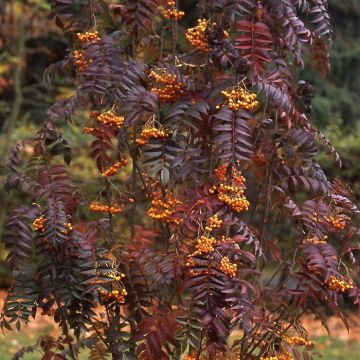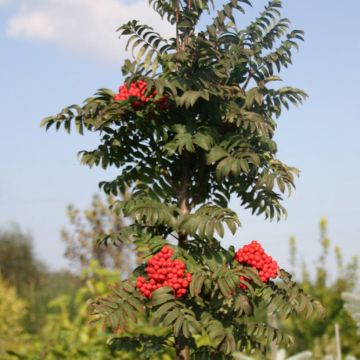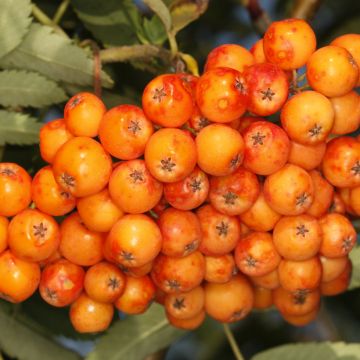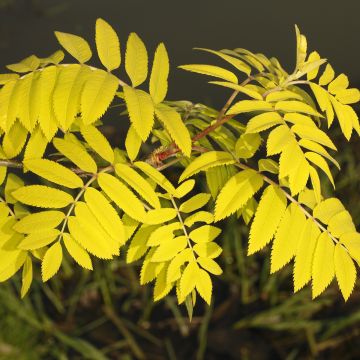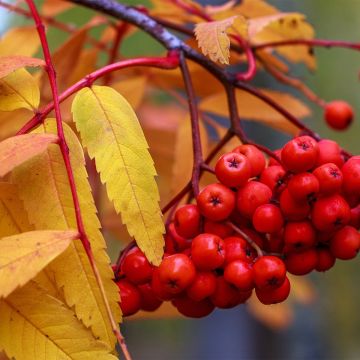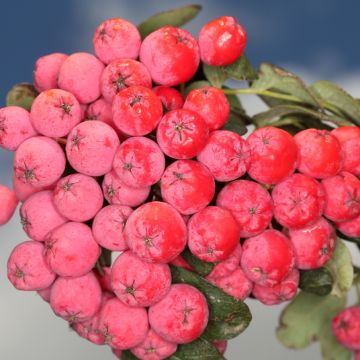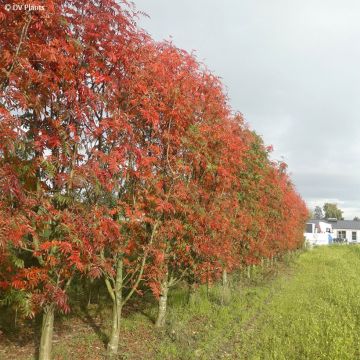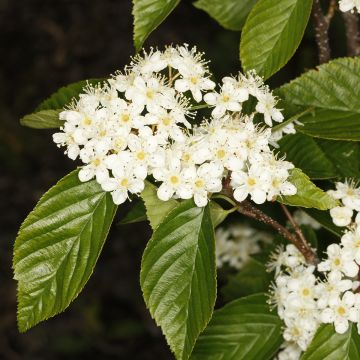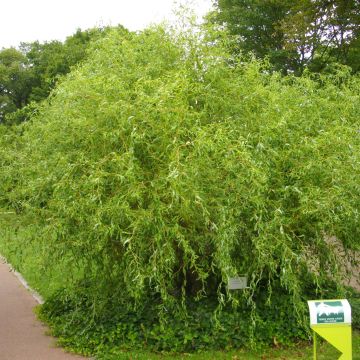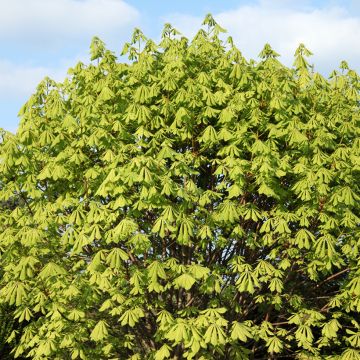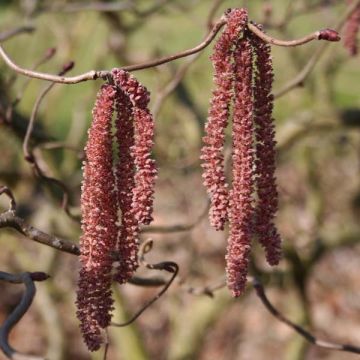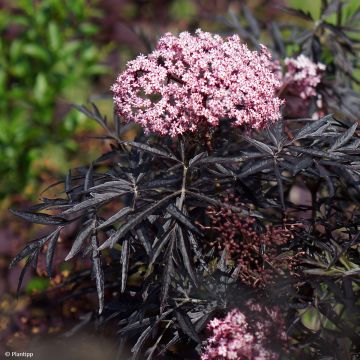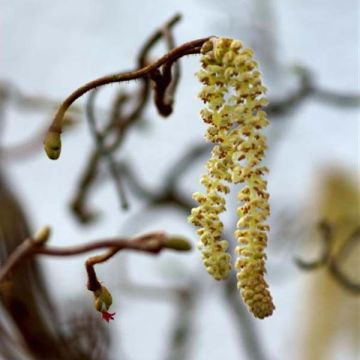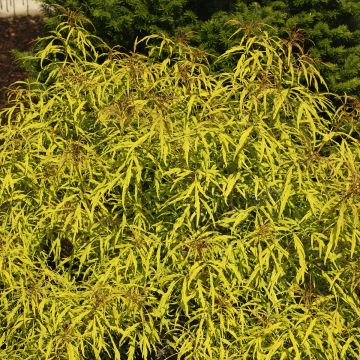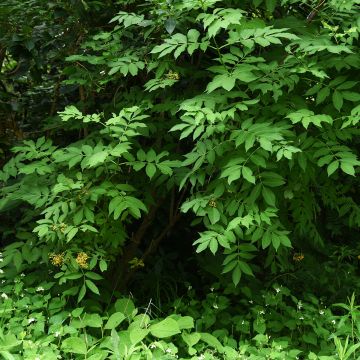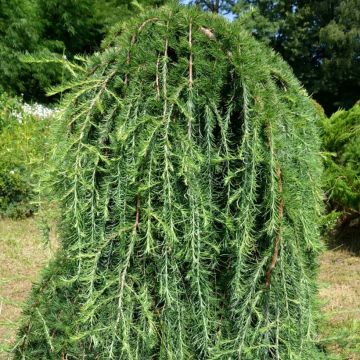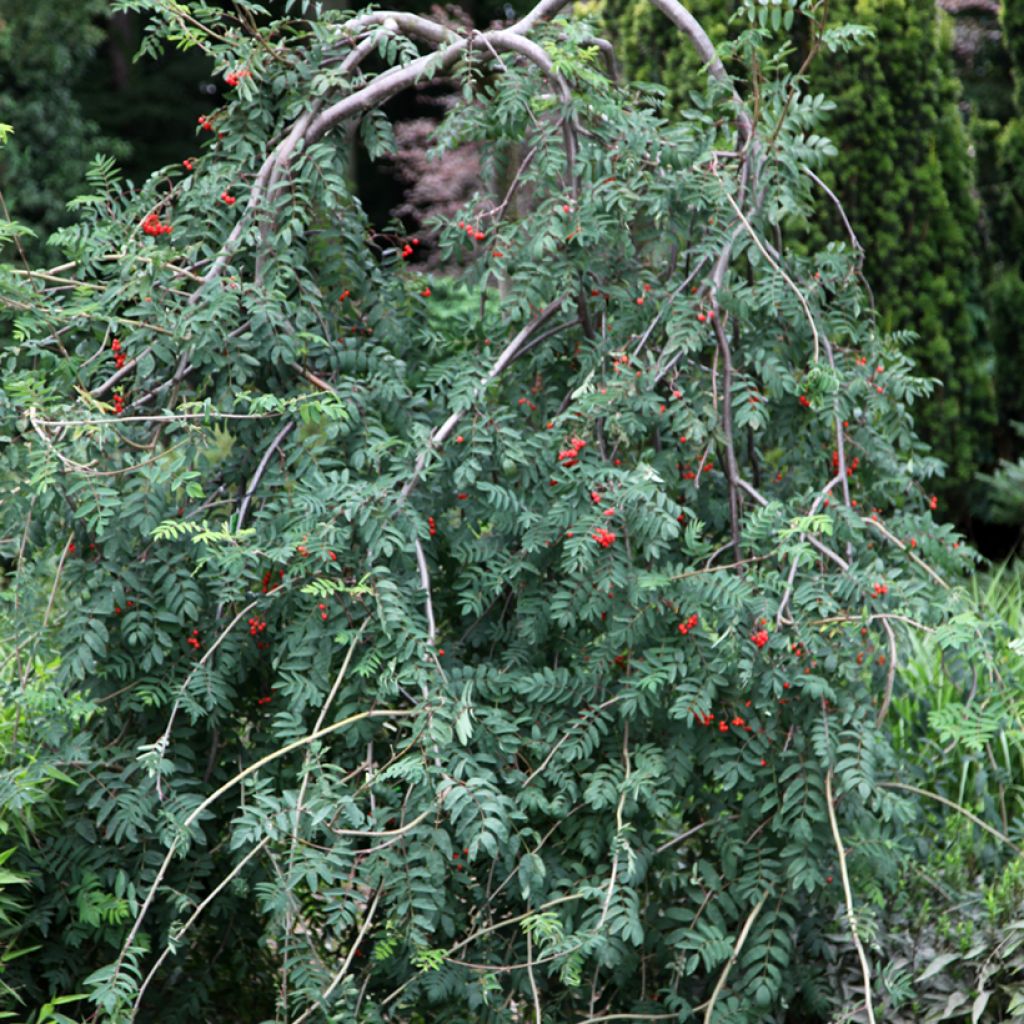

Sorbus aucuparia Pendula - Rowan
Sorbus aucuparia Pendula - Rowan
Sorbus aucuparia Pendula
Rowan, Mountain Ash
Special offer!
Receive a €20 voucher for any order over €90 (excluding delivery costs, credit notes, and plastic-free options)!
1- Add your favorite plants to your cart.
2- Once you have reached €90, confirm your order (you can even choose the delivery date!).
3- As soon as your order is shipped, you will receive an email containing your voucher code, valid for 3 months (90 days).
Your voucher is unique and can only be used once, for any order with a minimum value of €20, excluding delivery costs.
Can be combined with other current offers, non-divisible and non-refundable.
Why not try an alternative variety in stock?
View all →This plant carries a 24 months recovery warranty
More information
We guarantee the quality of our plants for a full growing cycle, and will replace at our expense any plant that fails to recover under normal climatic and planting conditions.
Would this plant suit my garden?
Set up your Plantfit profile →
Description
Sorbus aucuparia 'Pendula' is a beautiful form of mountain ash with a weeping habit. It is a small tree usually grafted on a standard that bears a wide crown trailing down to the ground. Its foliage, flowering, and fruiting are identical to those of the classic mountain ash. As tolerant as its parent, this variety from the collection thrives in cool climates in any soil that is not too dry. It naturally establishes itself as a specimen or at the centre of a bed of low plants.
Sorbus aucuparia 'Pendula' is a horticultural selection. The wild mountain ash is a tree about fifteen metres high that grows spontaneously in hedges, along pathways, or at the edge of woodlands. Its natural distribution area is very vast, covering much of Europe, Russia, temperate Asia, and extending to Japan. Its great hardiness and tolerance to numerous conditions explain the species' capacity for expansion. Only warm and dry climates deter it. In our countryside, its berries feed wild birds. All mountain ashes belong to the rose family.
Sorbus aucuparia 'Pendula' is a variety primarily known to collectors. The plant grows much slower than the typical species, eventually forming a tree of 3 to 4 m in height with a crown spanning over 4 m. Its branches and twigs are arched. Its foliage consists of numerous leaflets (9 to 17, averaging 13), fine and elongated, with a toothed edge. In autumn, the foliage turns yellow, orange, or red before falling. The flowering in white corymbs of about 12 cm in diameter appears in May, and is visited by bees. After pollination, numerous clusters of reddish-orange, very decorative fruits form, measuring 1 cm in diameter. Birds feed on them until December. The root system of the mountain ash is shallow: this tree does not cope well with drought, and strong winds can uproot it. It is very hardy (down to -29°C).
Sorbus aucuparia 'Pendula', due to its slow growth and reduced dimensions, can be planted in all gardens. It can be used as a specimen or at the centre of a small varied bed. To accompany it and highlight its unique silhouette, plant ground-cover perennials such as ground ivy and spring bulbs at its base. For added interest, there are many other weeping trees and shrubs, with decorative flowers or foliage, that can be welcomed into the garden.
Report an error about the product description
Plant habit
Flowering
Foliage
Botanical data
Sorbus
aucuparia
Pendula
Rosaceae
Rowan, Mountain Ash
Cultivar or hybrid
Other Sorbus - Mountain Ash
View all →Planting and care
Sorbus aucuparia 'Pendula' is best planted in autumn in most soils, preferably moist, acidic, neutral or slightly calcareous. Not very demanding, it adapts to loamy, clayey or sandy soils, but not too dry. Choose a sunny location, or possibly slightly shaded, and sheltered from the wind, as it is sensitive to it. It is not suitable for a Mediterranean climate or coastal conditions. Dig a planting hole 60 cm on each side and at the bottom, and add some compost to the base if the soil is poor. Soak the container in a bucket for a quarter of an hour to thoroughly moisten the root ball before placing it in the planting hole. Backfill and water generously; water during the first two years to allow the tree to establish well.
Planting period
Intended location
Care
This item has not been reviewed yet - be the first to leave a review about it.
Similar products
Haven't found what you were looking for?
Hardiness is the lowest winter temperature a plant can endure without suffering serious damage or even dying. However, hardiness is affected by location (a sheltered area, such as a patio), protection (winter cover) and soil type (hardiness is improved by well-drained soil).

Photo Sharing Terms & Conditions
In order to encourage gardeners to interact and share their experiences, Promesse de fleurs offers various media enabling content to be uploaded onto its Site - in particular via the ‘Photo sharing’ module.
The User agrees to refrain from:
- Posting any content that is illegal, prejudicial, insulting, racist, inciteful to hatred, revisionist, contrary to public decency, that infringes on privacy or on the privacy rights of third parties, in particular the publicity rights of persons and goods, intellectual property rights, or the right to privacy.
- Submitting content on behalf of a third party;
- Impersonate the identity of a third party and/or publish any personal information about a third party;
In general, the User undertakes to refrain from any unethical behaviour.
All Content (in particular text, comments, files, images, photos, videos, creative works, etc.), which may be subject to property or intellectual property rights, image or other private rights, shall remain the property of the User, subject to the limited rights granted by the terms of the licence granted by Promesse de fleurs as stated below. Users are at liberty to publish or not to publish such Content on the Site, notably via the ‘Photo Sharing’ facility, and accept that this Content shall be made public and freely accessible, notably on the Internet.
Users further acknowledge, undertake to have ,and guarantee that they hold all necessary rights and permissions to publish such material on the Site, in particular with regard to the legislation in force pertaining to any privacy, property, intellectual property, image, or contractual rights, or rights of any other nature. By publishing such Content on the Site, Users acknowledge accepting full liability as publishers of the Content within the meaning of the law, and grant Promesse de fleurs, free of charge, an inclusive, worldwide licence for the said Content for the entire duration of its publication, including all reproduction, representation, up/downloading, displaying, performing, transmission, and storage rights.
Users also grant permission for their name to be linked to the Content and accept that this link may not always be made available.
By engaging in posting material, Users consent to their Content becoming automatically accessible on the Internet, in particular on other sites and/or blogs and/or web pages of the Promesse de fleurs site, including in particular social pages and the Promesse de fleurs catalogue.
Users may secure the removal of entrusted content free of charge by issuing a simple request via our contact form.
The flowering period indicated on our website applies to countries and regions located in USDA zone 8 (France, the United Kingdom, Ireland, the Netherlands, etc.)
It will vary according to where you live:
- In zones 9 to 10 (Italy, Spain, Greece, etc.), flowering will occur about 2 to 4 weeks earlier.
- In zones 6 to 7 (Germany, Poland, Slovenia, and lower mountainous regions), flowering will be delayed by 2 to 3 weeks.
- In zone 5 (Central Europe, Scandinavia), blooming will be delayed by 3 to 5 weeks.
In temperate climates, pruning of spring-flowering shrubs (forsythia, spireas, etc.) should be done just after flowering.
Pruning of summer-flowering shrubs (Indian Lilac, Perovskia, etc.) can be done in winter or spring.
In cold regions as well as with frost-sensitive plants, avoid pruning too early when severe frosts may still occur.
The planting period indicated on our website applies to countries and regions located in USDA zone 8 (France, United Kingdom, Ireland, Netherlands).
It will vary according to where you live:
- In Mediterranean zones (Marseille, Madrid, Milan, etc.), autumn and winter are the best planting periods.
- In continental zones (Strasbourg, Munich, Vienna, etc.), delay planting by 2 to 3 weeks in spring and bring it forward by 2 to 4 weeks in autumn.
- In mountainous regions (the Alps, Pyrenees, Carpathians, etc.), it is best to plant in late spring (May-June) or late summer (August-September).
The harvesting period indicated on our website applies to countries and regions in USDA zone 8 (France, England, Ireland, the Netherlands).
In colder areas (Scandinavia, Poland, Austria...) fruit and vegetable harvests are likely to be delayed by 3-4 weeks.
In warmer areas (Italy, Spain, Greece, etc.), harvesting will probably take place earlier, depending on weather conditions.
The sowing periods indicated on our website apply to countries and regions within USDA Zone 8 (France, UK, Ireland, Netherlands).
In colder areas (Scandinavia, Poland, Austria...), delay any outdoor sowing by 3-4 weeks, or sow under glass.
In warmer climes (Italy, Spain, Greece, etc.), bring outdoor sowing forward by a few weeks.






























